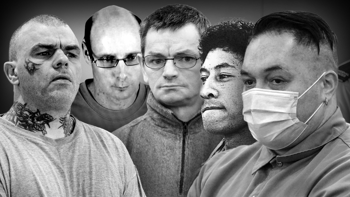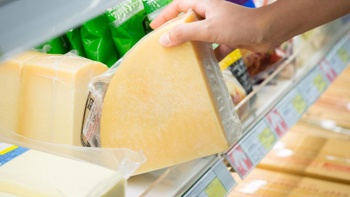Twitter is absolutely haemorrhaging cash after Elon Musk took over the company.
The world’s richest man confirmed the company’s money woes writing, “Twitter has had a massive drop in revenue, due to activist groups pressuring advertisers, even though nothing has changed with content moderation and we did everything we could to appease the activists. Extremely messed up! They’re trying to destroy free speech in America”.
The microblogging social media site makes most of its revenue from advertising.
But major advertisers have put their spending on hold while they evaluate the company’s content moderation policies following Musk’s $68 billion (US$44 billion) takeover.
According to Angelo Carusone, the president of non-profit media watchdog Media Matters for America, Twitter generally sells about US$600-$900 million in ads upfront at the showcase event NewFronts each year.
/cloudfront-ap-southeast-2.images.arcpublishing.com/nzme/M554LKYMIRAEUNFHL2Z3F7OD4Q.jpg) Elon Musk has taken over social media platform Twitter. Photo / Herald montage, AP, Getty Images
Elon Musk has taken over social media platform Twitter. Photo / Herald montage, AP, Getty Images
But this year, buyers were hesitant and Twitter’s presentation “imploded and ended shockingly early”.
“Twitter from what I understand basically sold almost nothing and locked in extremely little 2023 revenue,” Carusone wrote.
“This means that instead of heading into 2023 with 15-20 per cent of 2023 already secured as they typically would have, Twitter heads into next year with almost none of that. All because of Musk’s red-pilled edgelord approach.”
Carusone added Musk had months to address these concerns or even learn about them. But instead, he “insisted on antagonising the very businesses and people that sustain Twitter”.
- Elon Musk's brutal email before mass Twitter lay-offs
- Advertisers and celebrities may depart Twitter following Elon Musk buyout
- Gorilla Technology CEO on Musk's Twitter changes
“Back in May, the groups and companies weren’t calling for a boycott, they were asking basic questions,” Carusone said.
CBS News reports there was an “immediate, visible and measurable spike” in hate speech after Musk took over the company, citing new research.
There was a marked increase in “vulgar and hostile” rhetoric aimed at people based on their race, religion, ethnicity and orientation. There was also a spike in the usage of the “n-word”, “k-word”, and “f-word”.
Twitter’s head of safety and security Yoel Roth confirmed the company was battling a “surge” in hateful conduct on Twitter and was making “measurable progress”, removing more than 1500 accounts and reducing impressions on this content to nearly zero.
Musk wrote Twitter’s “strong commitment to content moderation remains absolutely unchanged”.
“In fact, we have actually seen hateful speech at times this week decline below our prior norms, contrary to what you may read in the press.”
Musk took over the company promising to ensure “freedom of speech” at the service, which famously banned then-US President Donald Trump following the January 6 United States Capitol attack, citing “the risk of further incitement of violence”.
There has been major push-back to Musk’s takeover from users on Twitter, who largely lean to the left politically
The site has been flooded with pledges from “heavy” Twitter users and people with large followings, stating they will no longer use the service.
Mountains of debt
Banks including Morgan Stanley, Bank of America and Barclays lent Musk $20 billion (US$13 billion) for the acquisition. However, they will have to be repaid by the San Francisco company, not by the entrepreneur personally.
According to a calculation made by AFP, Twitter will have to disburse a little less than US$1 billion from the first year as interest and principal, a high amount for a group whose turnover reached only US$5 billion in 2021.
“That debt is tricky when you’re losing money. So there’ll be a lot of pressure to cut costs and increase revenue so that they can make debt payments,” Steven Kaplan of the University of Chicago Booth School of Business said.
Otherwise, Musk will need to find funds to avoid bankruptcy.
The company has been losing about $6 million (US$4 million) a day, Musk wrote, as he justified firing workers.
The entrepreneur on Friday laid off about half of Twitter’s employees and is seeking new sources of revenue, including an optional subscription fee of $8 per month for those wanting a verified account.
Further development of Twitter may require an infusion of capital, more difficult to raise, in theory, by an unlisted company.
“I don’t think you can raise any more debt,” Erik Gordon, an entrepreneurship expert at the University of Michigan Ross School of Business said. But in this case “there is a Musk factor... You tweet a few times and you know, bring in the money”.
‘Radical changes’
Most such deals “are initiated either by a financial logic or an industrial logic”, whereas Elon Musk “didn’t have one”, Gordon said.
“He just was unhappy with the way Twitter was treating free speech” and concluded that he could “manage it better”.
As a general rule, an exit from the market is followed by “radical changes” at a company, Sreedhar Bharath, professor of finance at Arizona State University said. And those changes may not be readily apparent because the company no longer has an obligation to communicate publicly.
“The company is shielded from the punishment meted out by financial markets if they do not like the changes,” he said.
“Some might say the markets have an excessive focus on the next quarter results” and managers of newly privatised firms can “pursue long-term goals” without fretting about the short term.
“But with the high public profile of Twitter, key decisions are likely to become public,” noted Jagadeesh Sivadasan of the University of Michigan’s Ross School of Business.
“This was evident for the post-acquisition decisions regarding firing of key officers.”
Risk of bankruptcy
A study published in 2019 by two researchers at California State Polytechnic University that looked at nearly 500 deals between 1980 and 2006, found that about 20 per cent of large companies undergoing leveraged buyouts filed for bankruptcy within 10 years, compared with 2 per cent for a sample of other companies.
“Most of them have done better than public companies,” Gordon added, “but they don’t get a lot of publicity.
“The big failures get a lot of attention and create this idea that the debt kills the company.
“Most of the time, it works which is why people keep doing it.”
“Musk is one of the most creative people on the planet, able to build three totally different companies, PayPal, Tesla and SpaceX, all of which have reached more than $100 billion in valuation,” Kaplan said.
“He’s a talent magnet... He’s going to attract [to Twitter] real talent that hasn’t been there for a while... I wouldn’t bet against him.”
-Andrew Backhouse, news.com.au
Take your Radio, Podcasts and Music with you









